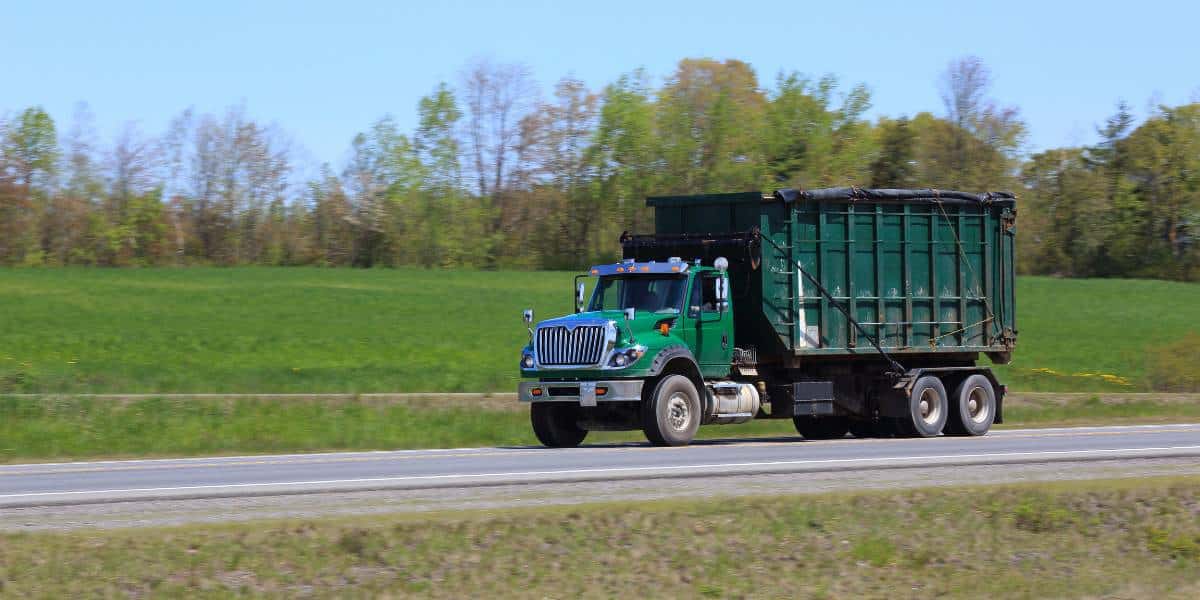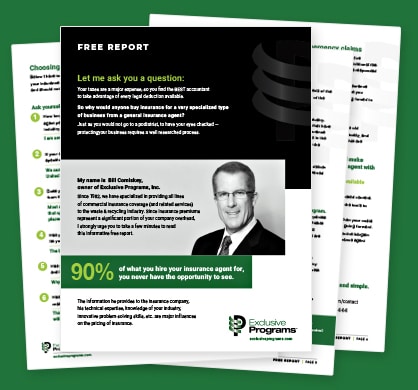As the saying goes, “Expect the unexpected.” When it comes to waste, recycling, and sanitation services, it is especially true. From unpredictable weather to accidents and spills to regulatory misconduct, one thing remains certain—commercial vehicle insurance is your safety net against the uncertainties that can disrupt your waste management operations and potentially jeopardize your business’s stability.
Protecting your vehicles and employees is crucial in this line of work. But one burning question remains: how much is commercial vehicle insurance? In this blog post, we’ll delve into the factors that influence the cost of commercial truck insurance and provide insights to help you make an informed decision.
Understanding Commercial Vehicle Insurance
Before we dive into the specifics of costs, let’s first understand what commercial vehicle insurance is. Commercial vehicle insurance is a specialized type of coverage designed for businesses that use vehicles for various purposes, such as transporting goods, providing services, or waste management. It offers protection against accidents, damages, and liability claims that may arise during business operations.
Factors Influencing Commercial Vehicle Insurance Costs
So, how much is commercial vehicle insurance? Well, the cost of commercial vehicle insurance can vary significantly based on several key factors. It’s essential to consider these factors when determining how much you’ll pay for your insurance coverage:
- Type of Vehicle: The type of vehicle you’re insuring plays a significant role in determining the cost. Larger and heavier vehicles, such as garbage trucks, may have higher premiums due to their increased potential for accidents and damages.
- Coverage Level: The extent of coverage you choose will impact the cost. Basic coverage may be less expensive, but it may not provide comprehensive protection. More extensive coverage options will come at a higher price.
- Location: Your business’s location can affect insurance rates. Areas with higher accident rates or greater risk factors may have higher premiums.
- Driver’s Experience: The experience and driving records of your employees who operate the vehicles matter. Good driving records can help lower insurance costs.
- Claims History: Your business’s claims history can also influence premiums. A history of frequent claims may lead to higher insurance costs.
- Deductible Amount: The deductible is the amount you’re responsible for paying before insurance coverage kicks in. Choosing a higher deductible can lower your premium, but it also means you’ll pay more out of pocket in case of a claim.
- Business Size: The size of your business and the number of vehicles you need to insure will impact the overall cost. Larger fleets may receive bulk discounts.
What Is the Average Cost of Commercial Truck Insurance?
Now that we’ve covered the factors that affect commercial vehicle insurance costs let’s address the question: What is the average cost of commercial truck insurance? Please note that these are average figures and actual costs can vary widely.
Average Annual Premiums:
When it comes to the cost of commercial vehicle insurance, the answer can vary significantly depending on the several factors listed above, especially in Florida. To get a clearer picture of the average costs of commercial vehicle insurance in Florida, we recommend reaching out to an experienced waste insurance agent like Exclusive Programs to explore all of the available options. So, what is the average cost of commercial truck insurance? Below are the average costs of insurance, according to local insurance providers in Florida, for different types of trucks within the waste, recycling, and sanitation industry: According to local providers in Florida, the average cost of insurance for each type of truck is around:
- Dump Trucks: On average, expect to pay between $10,000 to $15,000 per truck annually for dump truck insurance.
- Garbage Trucks: Garbage truck insurance can range from $7,000 to $15,000 per truck per year.
- Box Trucks: For box trucks, you might pay around $3,000 to $7,000 annually per vehicle.
These estimates are meant to provide a general idea but keep in mind that your specific circumstances will influence your actual costs. Remember that insurance is a valuable investment that can protect your business from financial hardships in the event of an accident or unexpected incident.
Get A Quote from Exclusive Programs
In the world of waste management and sanitation, having the right commercial vehicle insurance is non-negotiable. It safeguards your assets, and employees, and ensures the smooth operation of your business. So, how much is commercial vehicle insurance? The answer depends on various factors and your specific business needs. To get an accurate quote tailored to your needs, it’s best to consult with a reputable insurance provider.
At Exclusive Programs, we specialize in insurance solutions for the waste management and sanitation industry. If you’re looking for the best coverage for your business in Florida, contact us for more information. We’re here to help you navigate the world of commercial vehicle insurance and provide you with the protection your business deserves. Make the right choice today and secure your business’s future.


